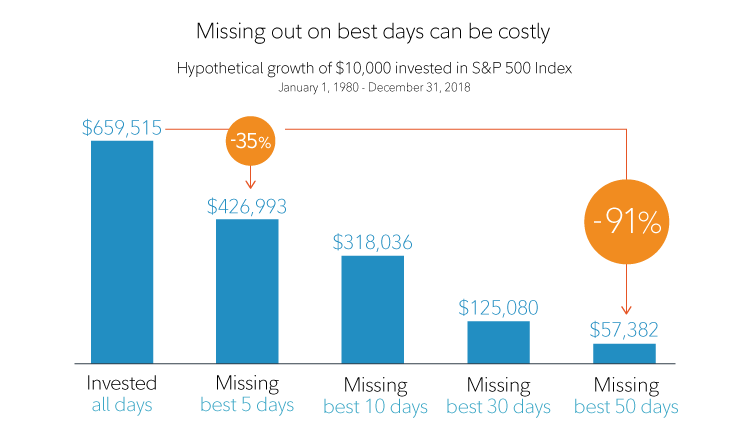Speculation is Not a Plan
With what feels like more headline-worthy events than one can count, 2020 certainly has been a year to remember. As we look toward the fall, it seems that the drama of 2020 will only continue as we face an upcoming presidential election coupled with the threat of a new spike in COVID-19 cases.
Some clients reached out to us to ask how we predict these events impact the stock market and how their portfolios should adjust in anticipation of these events. Making short-term investment decisions based on predictions about what may happen is commonly referred to as “speculation.” Speculation is one strategy that some investors deploy.
At Means Wealth Management, we are firm believers in a different approach. We believe in the value of having a financial plan and building a long-term investment strategy based on that plan. While this process can take many forms and encompass several strategies, one sentiment we believe holds is this, “Speculation is not a plan.”
The Dangers of Speculation
Ben Carlson, the author of the excellent blog, “A Wealth of Common Sense,” recently wrote about speculation, deeming it the greatest danger investors face. In the article, Carlson discusses various behaviors that we typically deem as speculative, including one of the most common speculative behaviors, day-trading.
Day-trading involves buying and selling financial instruments, typically within the same day, intending to earn short-term profits. Day-traders typically follow events that may cause short-term moves within the market. They make buying and selling decisions by speculating how those events impact a security price.
When discussing day-trading, Carlson cites a few studies that prove how risky day-trading can be. Including a study that looked at individuals who began day-trading in the Brazilian equity futures market from 2013-2015. The study found that 97% of those stuck with day-trading for more than 300 days actually lost money.
While it is easy to think of day-trading when we think of speculative investing, Carlson goes on to discuss some other speculative behaviors that we’ve seen among investors that can be just as devastating.
Abandoning The Plan
It is important to review and adjust one’s financial plan regularly. However, simply abandoning one’s plan to invest in what looks like a “hot” area or completely pulling out of the stock market out of fear are both speculative and potentially destructive behaviors.
Acting on Stock Tips
Your college fraternity buddy or your brother-in-law might be great people to play golf with. Taking a large chunk of cash and investing in a stock tip they give you over a couple of beers is probably not a good idea for your net worth.
A Set of Unrealistic Assumptions
We feel that one of the most important mindsets for an investor is a realistic set of assumptions. It is improbable that the stock market will be up every day from this point forward. It is important to remember that investments can provide both positive returns and losses.
Having a set of expectations that change when the markets fluctuate tends to lead to disappointment and emotionally-charged investment decisions. We work with clients to help them form realistic assumptions and expectations before investing. The stock market fluctuates. It’s important to focus on long-term averages instead of short-term fluctuations.
Timing The Market
It’s easy to look backward and say, “If only I had invested in this!” or “I should have sold these shares before the market corrected itself.” In reality, market timing is hard for anyone to get right consistently, even investment professionals. Attempting to time the market usually turns out poorly.
As the famous saying goes:
“Time in the market is more important than timing the market.”
Missing the Best Days in the Market
Fidelity Investments looked at the cost of missing the best days in the stock market from January 1, 1980, through December 31, 2018, by analyzing a hypothetical investor who put $10,000 into an S&P 500 Index fund.
They somehow managed to miss the best days in the market over this period. If this hypothetical investor stayed invested throughout the entire period, their initial $10,000 investment would have grown to $659,515 at the end of the period.
The chart below shows the impact of missing the best days in the market over this stretch:

Source: FMRCo, Asset Allocation Research Team, as of January 1, 2019. See article for details.
Although this is a hypothetical scenario, it gives color to the famous saying by Benjamin Graham.
“The investor’s chief problem, even their worst enemy, is likely to be themself.”
When an investor panics during a stock market correction and moves some or all of their portfolio out of stocks and into a more conservative investment, the investor often sells at or near the bottom and then misses out on a substantial portion of the market rebound that follows.
We saw this type of behavior during the financial crisis of 2008 and early 2009. This was particularly devastating to investors nearing retirement. Many sold and realized significant losses.
Then, they were on the sidelines as the market began a long bull market run. As a result, missing a significant chunk of the recovery. Their retirement savings and retirement plans were devastated in many cases.
In Conclusion
When our clients ask us how we predict this fall’s events will impact the stock market and how their portfolios should be adjusted, our response is this. We don’t make adjustments based on speculation.
At Means, we work with our clients to ensure their investment strategies fit within the context of their long-term financial plan while ensuring enough funds are invested in meeting short-term needs. Adjustments may be necessary over time. The key is to make them planful, not based on speculation.


